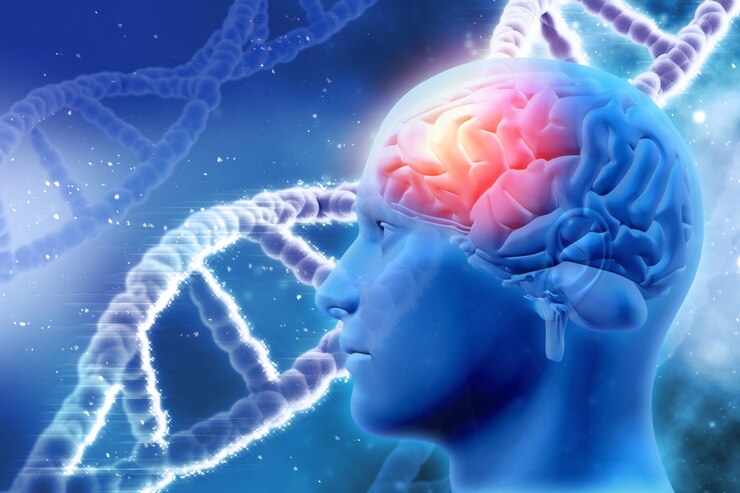
Good sleep is required by all to keep their body and minds in good condition. However, many people struggle to get the recommended hours of sleep every night. It can be a result of stress, a bad lifestyle or health issues, but sleep disruption can alter the life of a person quite negatively. Yet, nature has its way of beating this difficulty and that is done by the hormonal substance called melatonin. The melatonin hormone has a positive effect and helps us to stabilise and shape the quality of our sleep in a better way.
The common term “sleep hormone” can be used to describe melatonin, which is produced by our body to run our sleep cycle with a lot of power. The melatonin hormone continuously helps us set up a good sleeping pattern, and additionally, it also boosts our overall health. Under this detailed guide, we will be discussing practically everything about melatonin, from its role in the body and benefits to the risks involved.
What is Melatonin hormone?
Melatonin is the main source of our body that helps us fall asleep. Melatonin production is affected by the natural light-dark cycle change. The levels usually increase in the early evening as darkness falls and lessens during the morning when the sun rises.
Melatonin represents our internal body timings, signalling the beginning of sleep, adjusting our schedule of sleep and the process of waking up in the morning. The circadian rhythm is the one that regulates its production in the brain, where the suprachiasmatic nucleus is affected by light exposure changes.
Melatonin is released by the pineal gland in the evening as the daylight diminishes, and the prominence is highest at night, which causes the feeling of sleepiness and helps the transition to sleep.
Why is Melatonin called a sleep hormone?
Melatonin, or the sleep hormone, is solely responsible for a good sleeping pattern. The rise in melatonin during evening hours is a hint by our body that we should start winding down and prepare for sleep. This biologically conditioned mechanism enables us to get to sleep faster and remain asleep throughout the whole night.
This hormone has been branded “sleep hormone” due to its key role in causing sleepiness and because of the direction of our sleep-wake cycle. Along with the twilight, melatonin levels increase and become the body’s natural indication of the time to lay down and go to bed.
This factor gives melatonin the ability to bring on a rapid onset of sleep and also to promote uninterrupted sound sleep. This, in return, asserts melatonin’s pivotal position in bringing about sleep and in making sure that we continue to sleep in an uninterrupted way throughout the night.
Where is Melatonin produced in the body?
Our body has a gland called the pineal gland and that pineal gland is the principal organ for melatonin production with some other areas including the gut and the retina of the eyes. However, the pineal gland remains the most important source of melatonin which affects our sleeping patterns.
When is Melatonin released?
As a rule, melatonin is emitted in the dark. In sequence with the sun setting, the pineal gland produces melatonin, indicating the body gets ready to sleep. Additionally, melatonin levels are kept high during the night to preserve sleep and drop early in the morning as the sun rises. When Melatonin is released in lower quantities, the sleep cycle might be affected further causing other health issues.
What does melatonin supplement do to your body?
Melatonin supplements are often the chosen solution for sleep pattern problems, especially insomnia (where those people struggle with falling or staying asleep during the night). Thanks to the existence of melatonin as a dietary supplement, a person can realign their internal time zone and obtain a state of relaxation followed by falling asleep peacefully at night and being able to wake up refreshed every morning. Moreover, large doses of Melatonin supplements tend to lower the overall amount of melatonin naturally produced by the body.
Who can take Melatonin?
In most cases, melatonin supplements are safe for adolescents, specifically when used under the supervision of a medical expert. They might be most effective for people suffering from sleeping disorders in general, like insomnia, jet lag, and shift work sleep disorder. Nevertheless, it is essential to work in conjunction with a healthcare provider while beginning on melatonin supplements, particularly if you have any underlying conditions or if someone is on medications.
Why is a Melatonin supplement good for you?
These melatonin supplements function to help us maintain a balanced sleep and also offer other health advantages. For instance, they could ease the discomfort associated with seasonal affective disorder (SAD), as well as bring about quality sleeping patterns in the elders. Through melatonin as the supplement, improving your sleep can be a signal for overall health.
Potential risks of taking Melatonin
Short-term melatonin supplements are generally safe for most individuals, but they cause side effects in others, like headaches, dizziness, and sleepiness during the day. With time, the use of melatonin supplements might disrupt the production of melatonin by the body, create dependency on melatonin and can also be damaging to overall health. Correct application is key when using melatonin supplements. Discuss with your doctor any unusual consequences or doubts you face regarding its use.
FAQs
1) Can melatonin cause weight gain?
It is a complex issue where melatonin and weight gain are interrelated. Though melatonin itself won’t lead to weight gain directly, its role in maintaining sleep regularity might obliquely trigger some metabolic activities and appetite controls, which may eventually result in weight changes. Further studies show that there can be a link between dysregulated sleep patterns and weight gain.
2) Can melatonin affect your period?
Studies on potential melatonin impacts on the menstrual cycle have been carried out for a long time and the results are not clear yet. Several researches have highlighted that melatonin also is sometimes involved in controlling female reproductive hormones and menstruation. However, the evidence is restricted and not consistent.
3) Can Melatonin be taken during pregnancy?
The issue of melatonin use in pregnancy is still disputable and a matter of concern to the medical community. Although some experts maintain that melatonin intake during pregnancy might be controlled, others are cautious about possible foetal development side effects. Insufficient research with sometimes conflicting results leads to unclear instructions on the usage of melatonin during pregnancy.
4) Can melatonin cause depression?
The relationship between melatonin and the possibility of depression is complex and not completely elucidated. Melatonin, which is known to have a sleep-wake rhythm, has also been linked to the potential for mood change in some scientific studies. While melatonin shows a propensity to relieve depression, some studies citing melatonin and depression have been linked, while others have found possible adverse effects.
Conclusion
In summary, melatonin is a hormone that has the power to bring about overall good health because it enables you to sleep better. Keeping in mind its innate source of power can defy such sleep-related difficulties so that we get to experience more peaceful sleep and filled days. Be it when you are suffering from insomnia, jet lag, or desire to maximise your sleep, Melatonin supplements render a safe option to acquire the solution. But it should be done with a lot of thought, and you should certainly consult with a healthcare provider first if you have any doubts/concerns or undiagnosed health problems. When one gets a clearer picture, melatonin may turn into an important part of your effort for better sleep and healthy life.





